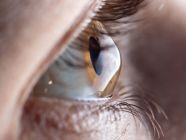The retina is the thin layer that lines the back inner wall of the eye, and it may be affected by several diseases that cause it to become weak or damaged. Which negatively affects vision, (1) what are retinal diseases?
What are the causes of retinal diseases?
The reasons vary depending on the case, but common factors include: (4)
- Age: The gradual damage to the retina that can occur with age is one of the most important causes of retinal weakness, a disease called age-related macular degeneration.
- Diabetes: hyperglycemia may damage blood vessels throughout the body, including those in the retina.
- Hypertension: Chronic high blood pressure can contribute to weakness and damage to the retina.
- Eye injuries: Direct eye injuries, infection, or surgery may cause damage to the retina.
- Genetics: Genes may play a role in some retinal diseases, such as retinitis pigmentosa.
What are the symptoms of retinal diseases?
See a doctor as soon as possible if any of the warning signs of retinal diseases appear, such as: (4)
- Blurred vision.
- Seeing black floating objects.
- Bright flashes of light in the field of vision.
- Loss of central or peripheral vision.
- Difficulty seeing in low light or at night.
- Straight lines appear as if they were wavy.
What are examples of retinal diseases?
The most common examples of retinal diseases include: (1) (2)
- Retinal tear
A retinal tear occurs when the transparent, gel-like substance (vitreous) in the center of the eye shrinks and tugs on the attached retina with it, which may cause a tear in the retinal tissue. This condition causes sudden changes in vision, such as seeing floaters and flashing lights in the field of vision.
- Retinal Detachment
It occurs when all or part of the retina separates from its supporting tissue in the back of the eye. Symptoms may range from mild, unnoticeable to complete blackening of vision, depending on the severity of the separation.
- Age-related macular degeneration
It is the most common cause of visual impairment in people over the age of 50, and occurs when the small central part of the retina is damaged; Due to aging, which may lead to weakness or darkening of central vision. (3)
- Diabetic Retinopathy
It is a complication of diabetes, which occurs as a result of high blood sugar levels for long periods, which gradually damages the tiny blood vessels in the retina, causing blurred vision, or even loss of vision in advanced cases if left untreated. (2)
- Epiretinal membrane
It is the formation of a scar or a thin wrinkled membrane on the surface of the retina as a result of previous conditions or other causes, and it causes blurred vision or jagged vision over time. (2)
- Macular hole
A small hole forms in the center of the retina due to direct injury to the eye, or abnormal friction between the vitreous body and the retina. Which affects vision. (1)
- Retinitis pigmentosa
It is a rare genetic disease that causes gradual loss of vision, often beginning with night blindness and poor side vision. (2)
What are the treatments for retinal diseases?
Early treatment of retinal diseases is necessary to fully restore vision, and if treatment is delayed, the patient may suffer permanent vision loss.
Treatment for retinal diseases depends on the type and severity of the condition. Some common treatments include: (1)(4)
- Laser treatment: It is used to treat various conditions, including: retinal tear, retinal hole, retinal swelling, and others.
- Injection: Medications are injected directly into the eye to treat several problems, such as: diabetic retinopathy and age-related macular degeneration.
- Intense cold (cryotherapy): creates scarring that closes a tear or detachment..
- Pneumatic retinopexy: The surgeon injects a gas bubble into the eye to keep the retina in place.
- Surgery: Surgery may be an appropriate option in some advanced or hereditary cases, examples of which include: vitrectomy, retinopexy, or retinal transplantation.
Feel free to visit our Ophthalmology department At Al-Ahli Hospital to get the care your eyes deserve. Our specialized medical staff has the best and latest technologies to diagnose retinal diseases and treat them with appropriate methods.
How can retinal diseases be prevented?
Regular eye examinations are recommended every 1-2 years for adults or as recommended by a doctor, especially with age or diabetes. Retinal diseases do not always show any warning symptoms, and early detection and prompt treatment can help prevent worsening vision or loss of vision. (5)
References
- Mayo Clinic - Retinal diseases
- Optometrists Network - Retinal Diseases
- American Optometric Association - What Is Macular Degeneration?
- Cleveland Clinic - Retinal Diseases
- American Optometric Association - Comprehensive eye exams






